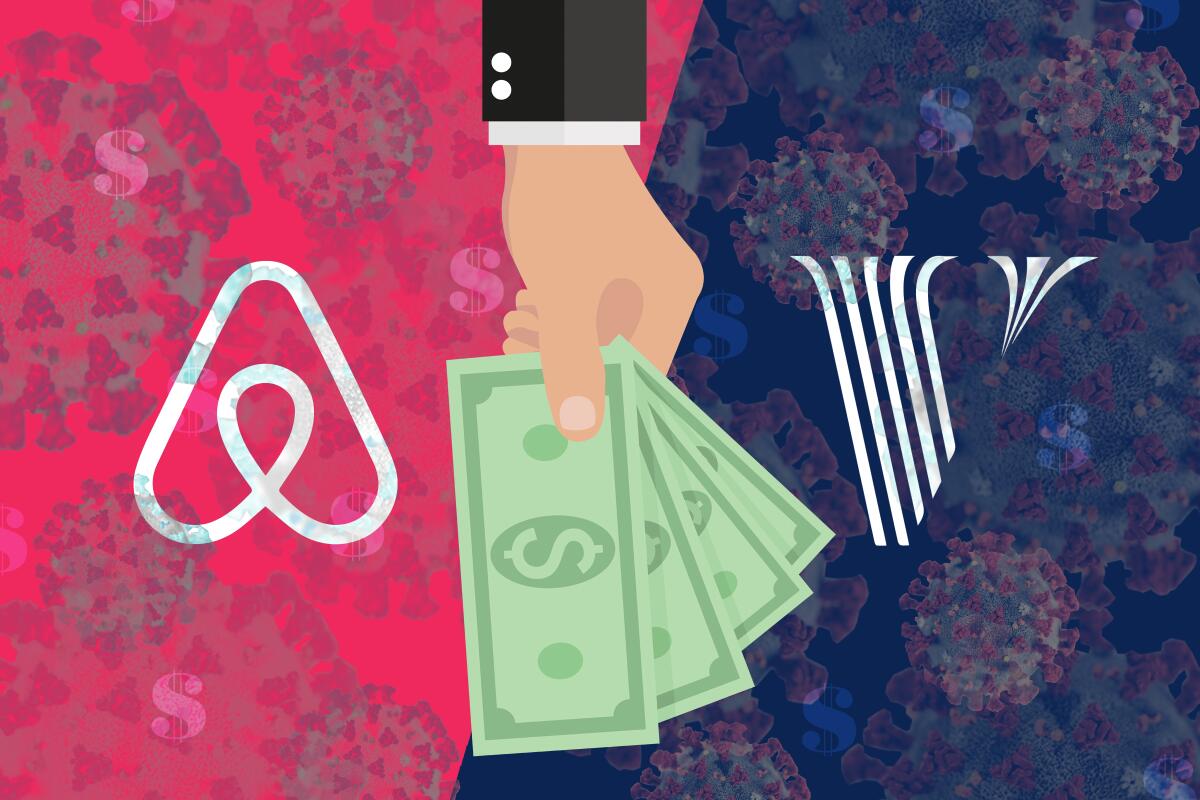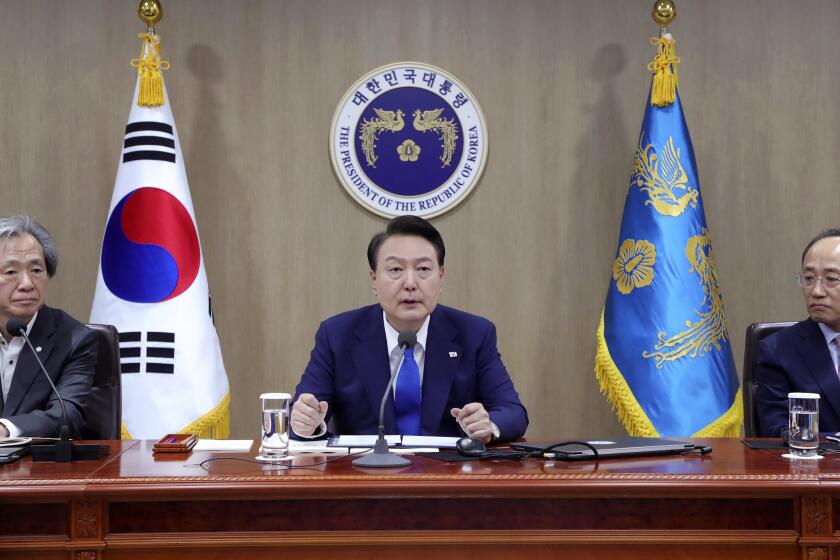Why you’re getting your money back from Airbnb and why you may not with Vrbo

If you cancel a travel-related reservation because of a pandemic, shouldn’t you get your money back?
Easy and logical question to ask, but exquisitely hard to answer in this time of the coronavirus.
Or is it?
Let’s look at two vacation rental organizations that faced these hard questions as the world was becoming the equivalent of a slow-motion train wreck.
Vrbo and Airbnb are different in their intent (or used to be). Vrbo (which grew out of the idea of vacation rental by owner and now is owned by Expedia) helps match vacationers with properties (cabins and cottages, houses and apartments, yurts and villas, including those over water). Those accommodations often are part of the fun of the vacation experience.
Airbnb, meanwhile, grew out of the sharing economy as a way for owners to take rooms they weren’t using and turn them into cash. That spare room becomes a guest room for a visitor, who pays for an opportunity to stay somewhere less formal than a hotel and sometimes less expensive.
Since its introduction at the outset of the Great Recession, Airbnb has grown to include higher-end properties and has become a powerhouse in the lodging industry.
Besides the differences in dwellings they provide, the two companies have taken different paths with their customers as the coronavirus story has unfolded. Here’s a look at what has happened and what it means for the consumer.
Some ticket holders may receive extension on ticket expiration dates
Airbnb
“It’s not like we had a pandemic playbook,” said Chris Lehane, vice president, global policy and communications for Airbnb.
But because Airbnb has properties in more than 220 countries and regions, its website noted, it has dealt with hurricanes and cities struck by terrorism, earthquakes and fires. And because it has properties in China, South Korea and Japan, the organization had experience with the novel coronavirus before it began to crest in the United States.
The World Health Organization declared the coronavirus a pandemic March 11, and President Trump declared a national emergency March 13. On its website, Airbnb noted that those who were renting between March 14 and May 31 and had booked on or before March 14 would receive a refund.
That may have pleased guests, but hosts were not happy about losing income. Airbnb then created a $250-million fund for hosts hurt by the economic collapse and added $10 million more as a relief fund for “super hosts,” who are the A-plus students if this were school.
Hosts also have opened their homes to first responders, making as many 100,000 rooms available to them, Lehane said, noting that this initiative has come from hosts.
Vrbo
When The Times asked for reader feedback on how the pandemic had changed their travel plans, we received half a dozen responses from readers unhappy with experiences on Vrbo.
“The vast majority of homeowners and property managers (more than 95%) have provided credits or refunds to travelers even outside their cancellation policies,” said Melanie Fish, a Vrbo representative.
“The policy isn’t going to make everyone happy, and that’s hard to take for a travel brand, since we’re in the business of helping families find happy places.
“Facing that conundrum, Vrbo’s leaders created a policy as fair as it could possibly be to the travelers who never thought they’d have to cancel outside of the refund window and also fair to the homeowners who can’t financially survive if they refund all their bookings all at once.”
Homeowners are encouraged, in a variety of ways, to make refunds. Some took the encouragement to heart; others did not.
Matt Kashani of San Diego had back-to-back Vrbo condo rentals on Kauai and very different experiences, he said. The first owner refunded Kashani’s money. The second owner canceled the reservation, he said, and would not offer a refund. Vrbo eventually refunded Kashani’s money for the second stay plus all fees.
Janet Carson-Flamini didn’t fare as well. She had a family trip planned to London and had already paid $3,000.
“Even with Vrbo’s guidelines to hosts to at least refund 50%, ours has been totally inflexible,” she said in an email. At first, the host said the funds could be applied to a future trip. But, as Carson-Flamini noted, the place was booked through January 2022. “It’s nuts,” she said in an email.
It got even nuttier.
She later received an email that said the management group had been “forced to file articles of dissolution” and that a manager had been appointed to “liquidate business affairs.”
“Final numbers will be settled by 20 April 2020,” the email said. “If a refund is available to you, a check will be mailed by the first of May.”
The entity handling the dissolution did not respond to a request for information from The Times. Vrbo also did not respond regarding the dissolution information.
Creating a plan before there’s a problem
Edward Segal, who specializes in crisis management and is the author of the soon-to-be-released book “Crisis Ahead: 101 Ways to Prepare for and Bounce Back From Disasters, Scandals, and Other Emergencies,” knows that every company will need help at some point.
“What we are seeing now underscores the importance for every company and organization, including those in the travel industry, to prepare and know how to properly manage a crisis situation,” he said in an interview.
“Whether you are a major player or a bit player, you really need to have a crisis management plan in place, and if you didn’t have it before the pandemic, you certainly need it now. I’ve seen too many companies and organizations driving in the dark without headlights.”
Having a path forward ensures that your company is protected, but it is important, he said, “to protect the people that helped make you a success.”
Giving credits instead of refunds “does not send a good message,” he said. Companies are “essentially holding their money hostage, getting an interest-free loan.”
And, he said, consumers will remember how they have been treated. “If a consumer has been treated badly by anyone in the travel industry, that can influence their opinion of the entire industry going forward.”
It’s a piece of advice to remember as companies look ahead to recovery.
Have a problem, question or travel dilemma? Write to [email protected]. We regret we cannot answer every inquiry.
More to Read
Sign up for The Wild
We’ll help you find the best places to hike, bike and run, as well as the perfect silent spots for meditation and yoga.
You may occasionally receive promotional content from the Los Angeles Times.









